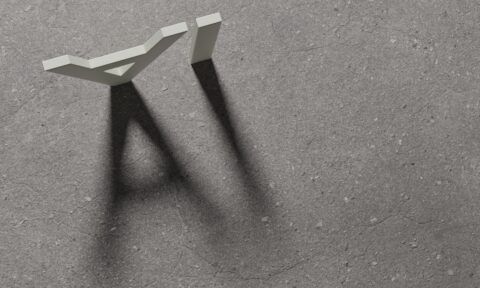Design of Pipelines and Risers
- Course focuses on design of pipelines and risers for offshore industry.
- Teaches structural analysis methods and stress analysis.
- Covers hydrodynamic and environmental loading on pipelines and risers.
- Emphasizes VIVs on risers, moorings, and fatigue performance.
- Suitable for engineers and scientists in offshore structures and equipment.
Overview
The Pipelines Design Course focuses on teaching the principles of designing pipelines and risers for the offshore industry. It covers topics such as structural analysis methods, hydrodynamic and environmental loading, VIV effects, fatigue performance, and material selection. The course is designed for engineers and scientists involved in the design, operation, and assessment of offshore structures. Lectures are delivered by experts in the field, providing valuable insights and methodologies for achieving optimal design.
Who should attend
Engineers, Scientists, Personnel from Oil Companies, Consultancy Organizations, Classification Societies, Certifying Authorities.
Course Content
About the Course
The course will aim to teach the first principles of design of pipelines and risers used for the offshore
industry. Introduction to structural analysis methods for cracks, dents and corrosion defects give an
understanding for the methods for stress analysis. In depth study on hydrodynamic loading on pipelines and the environmental loading on risers will provide a wide view to the dynamic loading analysis methods. Furthermore the effects of VIVs on risers and moorings provide an overview of the challenges in design of risers as well as aid to the methods for modelling and analysing risers and mooring lines.
Structural design of risers dictate the life and fatigue performance of a riser, this area will be covered in depth and methodologies for achieving an optimum design using FEA and reliability will also be
addressed. Finally, emphasis will be given to the overall design procedures including fatigue and
fracture of the pipelines. Material selection and their properties will be covered briefly.
Who Should Attend
Engineers and scientists involved in the design, operation and assessment of offshore structures and
their associated equipment. Personnel from oil companies, consultancy organisations, classification
societies and certifying authorities will also benefit from attending this Course
PROGRAMME
Day 1
08.30 – 09.00 Delegate Registration
09.00 – 10.30 Lecture 1: Hydrodynamic around pipes
Dr Wenxian Yang
10.30 -10.45 Break
10.45 – 12.15 Lecture 2: Analysis of flexible pipelines
Dr Wenxian Yang
12.15 – 13.30 Lunch
13.30 – 15.00 Lecture 3: Vortex Vibration of Risers and Moorings
Dr Wenxian Yang
15.00 – 15.30 Break
15.30 – 17.00 Lecture 4: Overview of pipeline design premise
Purnendu Das
Day 2
09.00 – 10.30 Lecture 1: Structural design of top tensioned riser systems
Trevor Hodgson
10.30 – 10.45 Break
10:45-12:15 Lecture 2: Finite element Analysis of in-situ behaviour
Trevor Hodgson
12.15 – 13.30 Lunch
13.30 – 15.00 Lecture 3: Design for buckling and strength
Purnendu Das
15.00 – 15.30 Break
15.30 – 17.00 Lecture 4: Application of Structural Reliability to Pipelines
Purnendu Das
ABOUT THE LECTURERS:
Professor Purnendu DasBE, ME, PhD, C.Eng, C.MarEng, FRINA, FIStructE, FIMarEST has been the Director of ‘ASRANet from its inception in February 2006. He retired as Professor of Marine Structures in the Department of Naval Architecture & Marine Engineering at the University of Strathclyde, UK. Past EU projects were MARSTRUCT (a network of excellence on Marine
Structure) and SHIPDISMANTL (a cost effective and environmentally friendly dismantling of ship structures).
Past industrial projects included work from the UK Health and Safety Executive (HSE), MoD UK, Subsea-7 UK, Shell, Wood group and US Navies etc. He was the principal investigator of many EPSRC projects. Before joining the University of Glasgow in 1991 he worked with British Maritime Technology as Principal Structural Engineer (1984-91). He is the author of more than 250
publications, including contract reports and more than 60 journal papers and was a member of the editorial boards of the ‘Journal of Marine Structures’, ‘Journal of Ship & Offshore Structures’, ‘Journal of Engineering under Uncertainty: Hazards, Assessment and Mitigation’ and ‘Journal of Ocean and Climate System’ amongst others. His areas of research include limit state design and analysis & reliability analysis of ship & offshore structures. Professor Das has wide ranging industrial and
academic contacts and has advised and supervised 20 PhD students, to his credit. Details of visits and collaborations include his various sabbatical study periods spent at University of California, Berkeley, USA (July – September 1996), at Lloyd’s Register of Shipping (August1997), Kockums Ltd (July 1998) and spent some time at Instituto Superior Técnico (IST), Lisbon (July 2000). He has been running various successful CPD courses which are attracting many people from different
industries. These courses are on ‘Fatigue & Fracture Analysis’, ‘Ships at Sea’, ‘Advanced Analysis and Design of Offshore Structures’, ‘Offshore Floating System Design’, ‘Structural Response under Fire and Blast Loading’ and ‘Design of Pipelines and Risers’ amongst others. He was a member of ISSC (International Ship and Offshore Structure Congress) for the periods of 1991-97 and 2003 – 2006. He was a member of the OMAE (Offshore Mechanics and Arctic Engineering) Organising
Committee on ‘Safety and Reliability’. He has organised six ASRANet International Conferences in 2002 (Glasgow), 2004 (Barcelona), 2006 (Glasgow), 2008 (Athens), 2010 (Edinburgh) and 2012 (London) where a large number of participants from various countries attended. The theme of the conference is the integration of risk, advanced structural analysis and structural reliability analysis as applicable to various engineering structures. He was the member of Research committee of the Institution of Structural Engineers (I.Struct.E) London for 3 years (2014-2017). He was a visiting professor at Wuhan University of Technology, China from July 2016-July 2019. At present he is a visiting professor at the University of Montenegro, Montenegro.
Trevor Hodgsonis in his second spell with Atkins, having been with them in total for well over thirty years. He has spent the majority of this time working in offshore-related areas, both in the technical execution of this work and in the management of teams of engineers to achieve specified goals. He has extensive experience of conceptual and detail design for jacket structures and topsides, including over thirty platforms in SE Asia, and concrete structures in the North Sea and worldwide. His experience encompasses both shallow and deeper water platforms of steel and concrete construction, drilling riser and conductor analysis, semi-submersible and FPSO vessels, high-speed aluminium surface craft, and even peer review for the nuclear industry. He has recently been involved in the development of concepts and detailed designs for the offshore renewable energy market, including wind, wave and tidal energy conversion devices, most recently Wind Turbine Generator (WTG) substructures. He is highly experienced in the application and interpretation of advanced finite element analysis methods for the design process and has used this experience to great effect in the development and support of engineering software, primarily the ASAS:
OFFSHORE suite for the oil and gas industry, now part of ANSYS. He is the author of numerous texts on structural design and analysis, was convenor of a panel covering Structural Analysis of Fixed Concrete Platforms for the ISO standard on offshore installations, and lectures for ASRANet and the Universities of Glasgow and Strathclyde on offshore structures and renewables.
Duration: 2 Days
Cost: £850 + VAT
Design of Pipelines and Risers Training in London, Scotland, Inverness, Aberdeen, Glasgow, Edinburgh, Dunfermline and other sites throughout the UK including onsite closed company courses are available.



